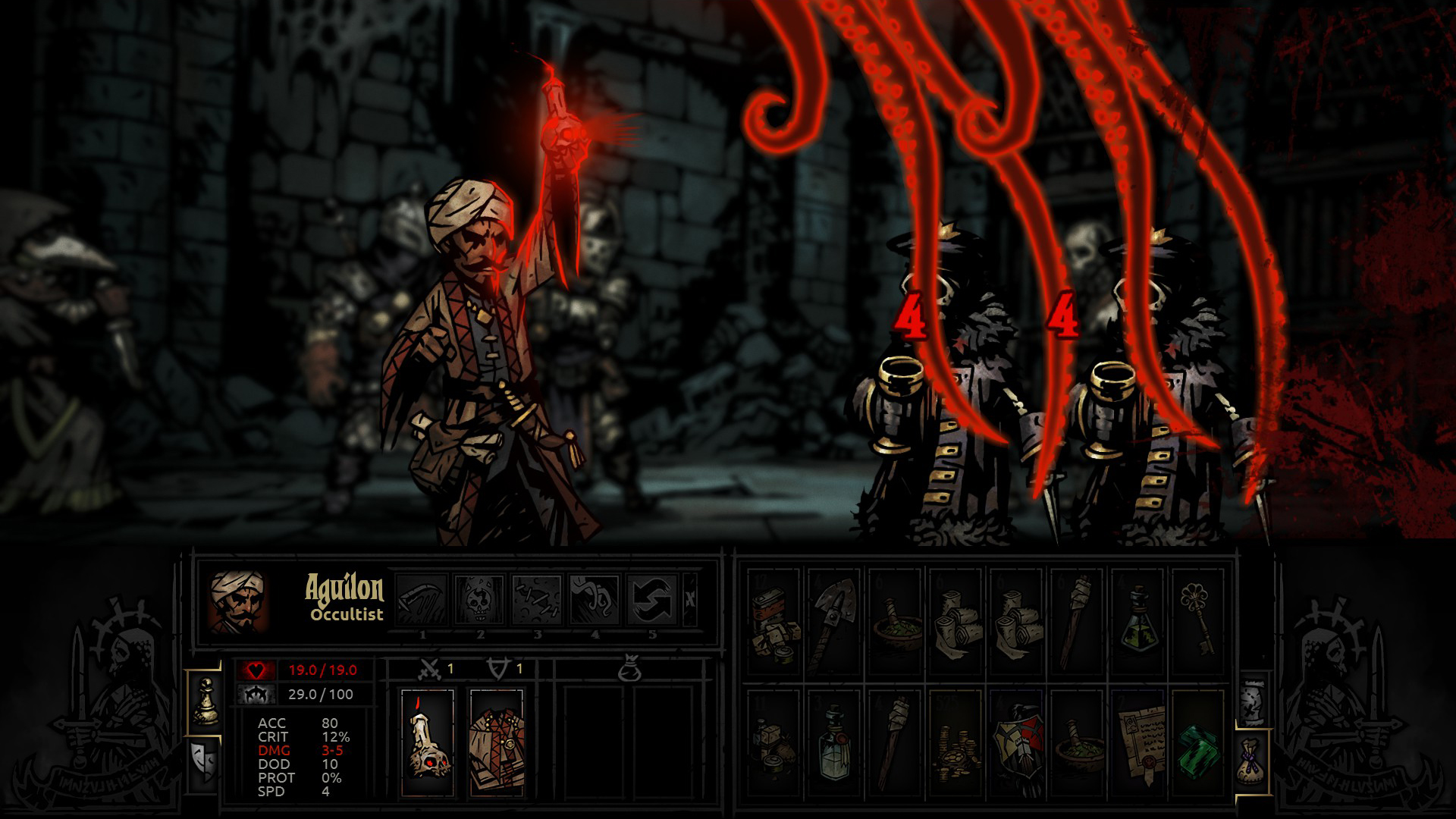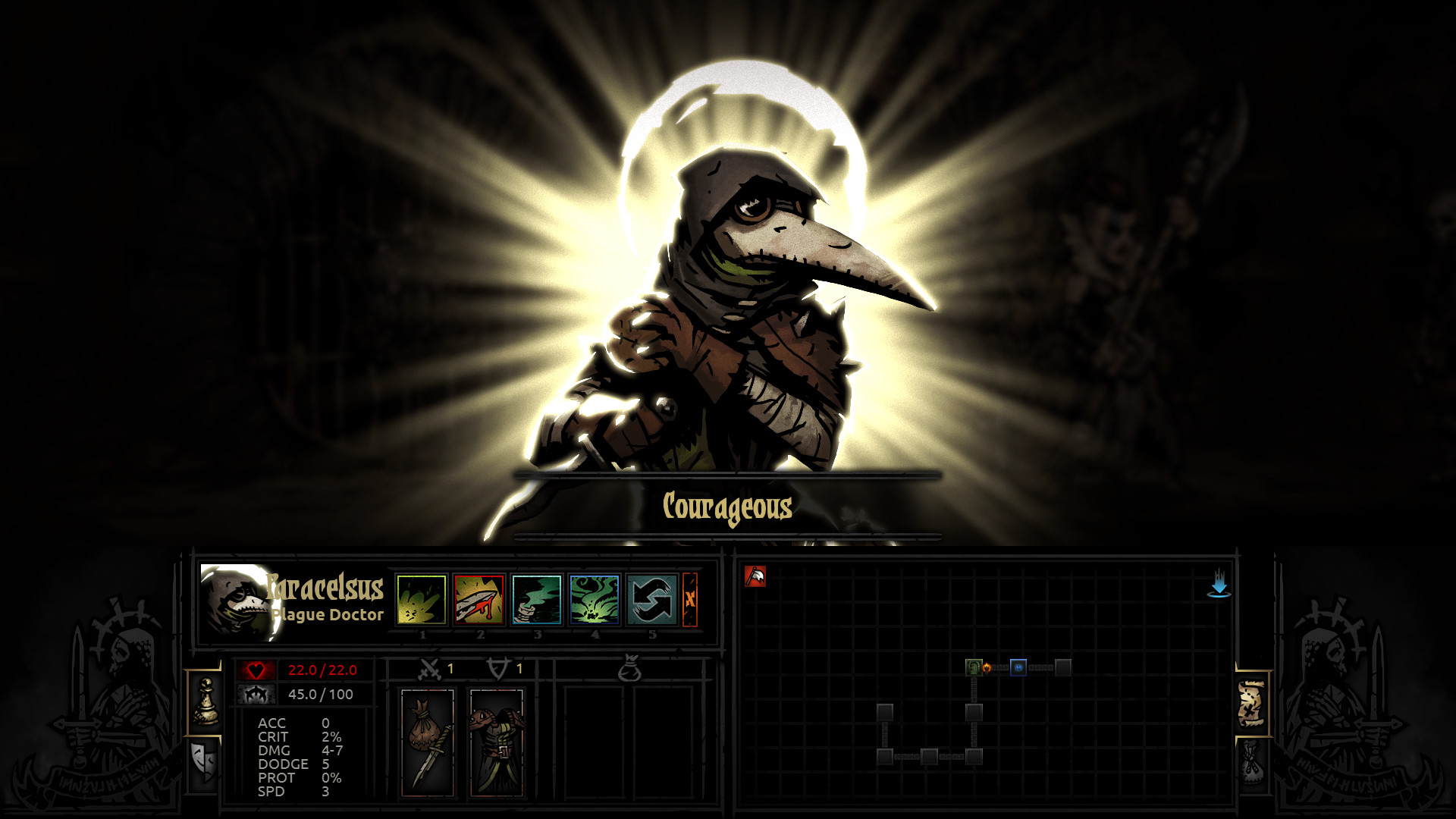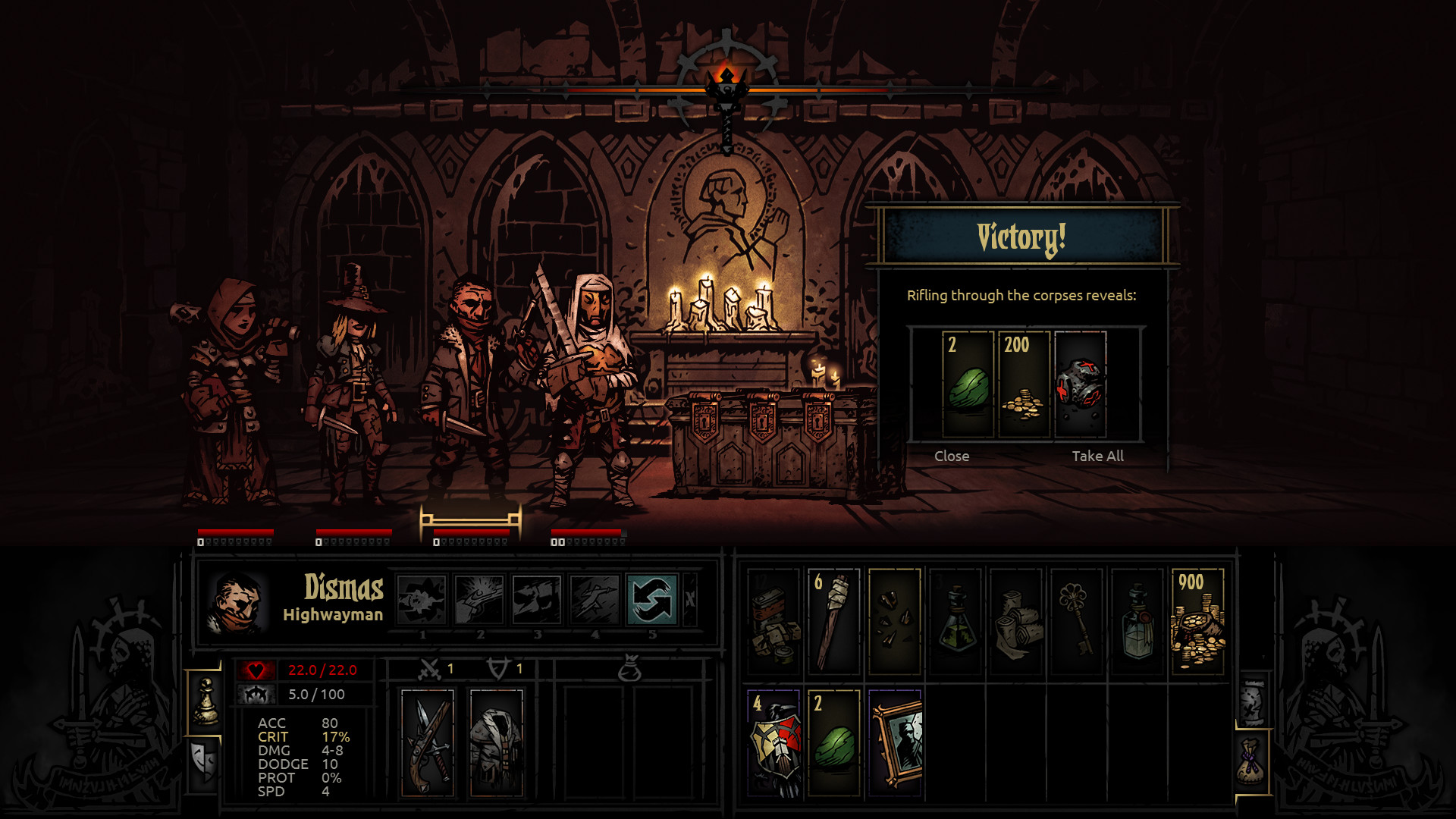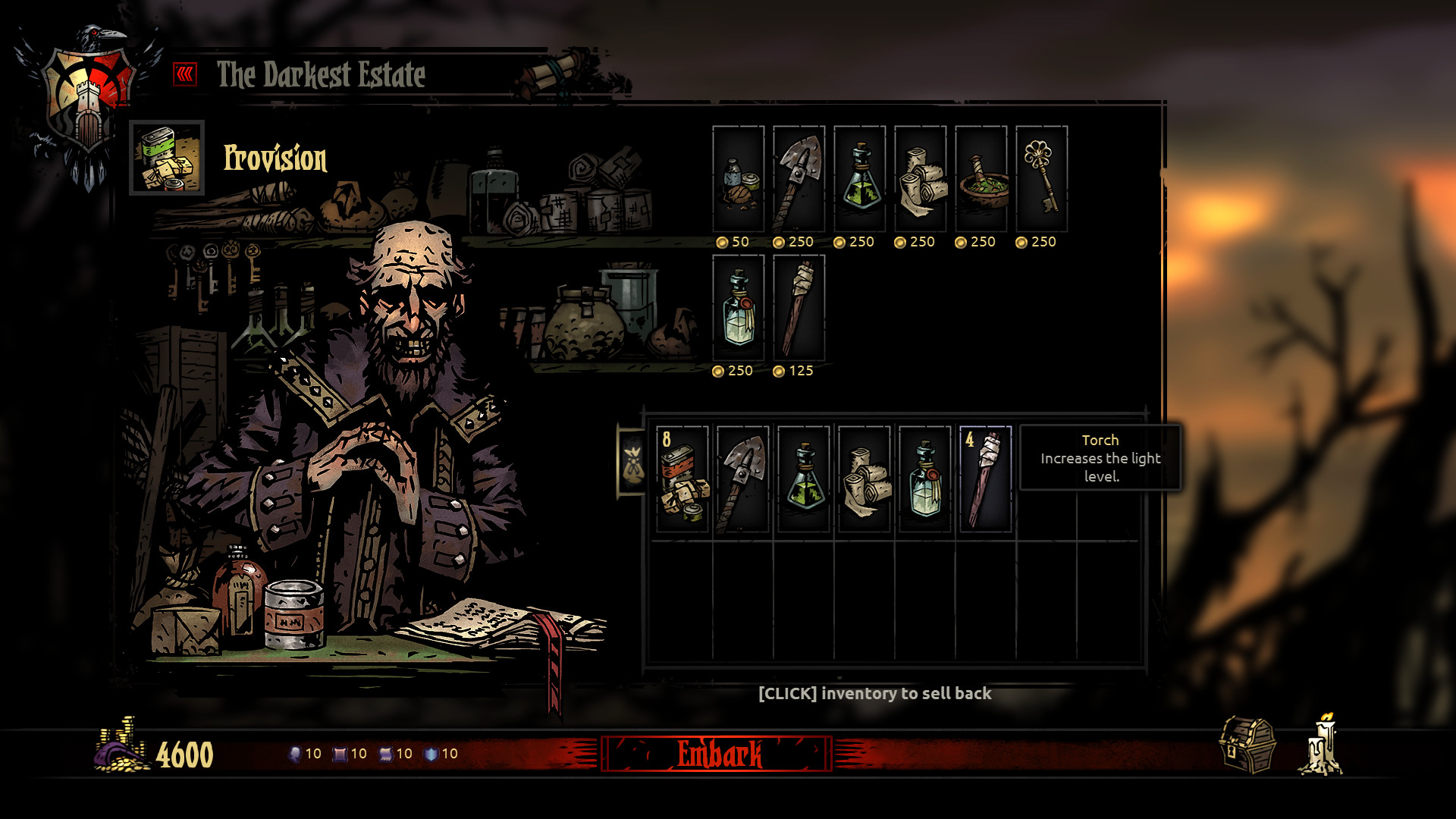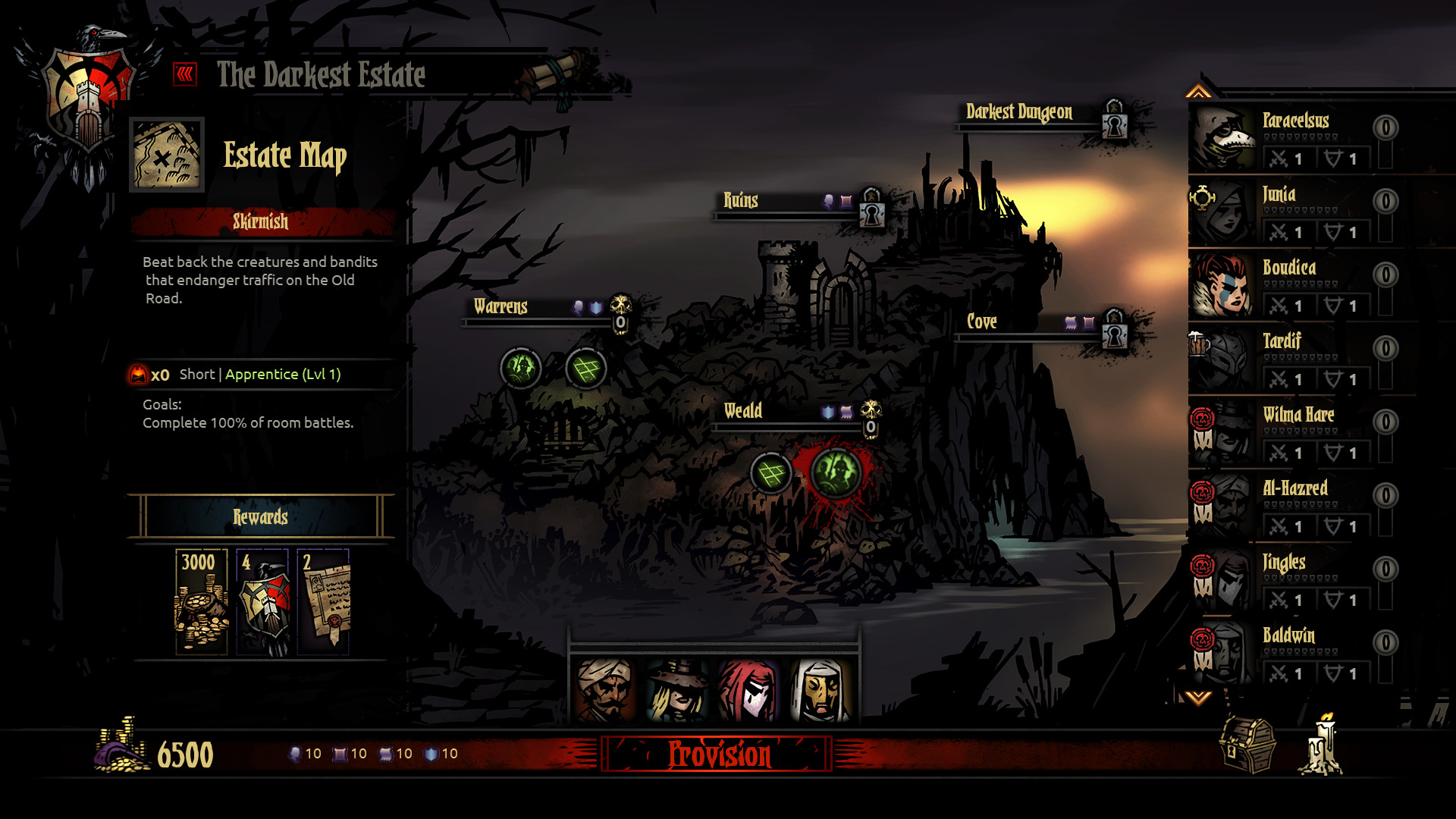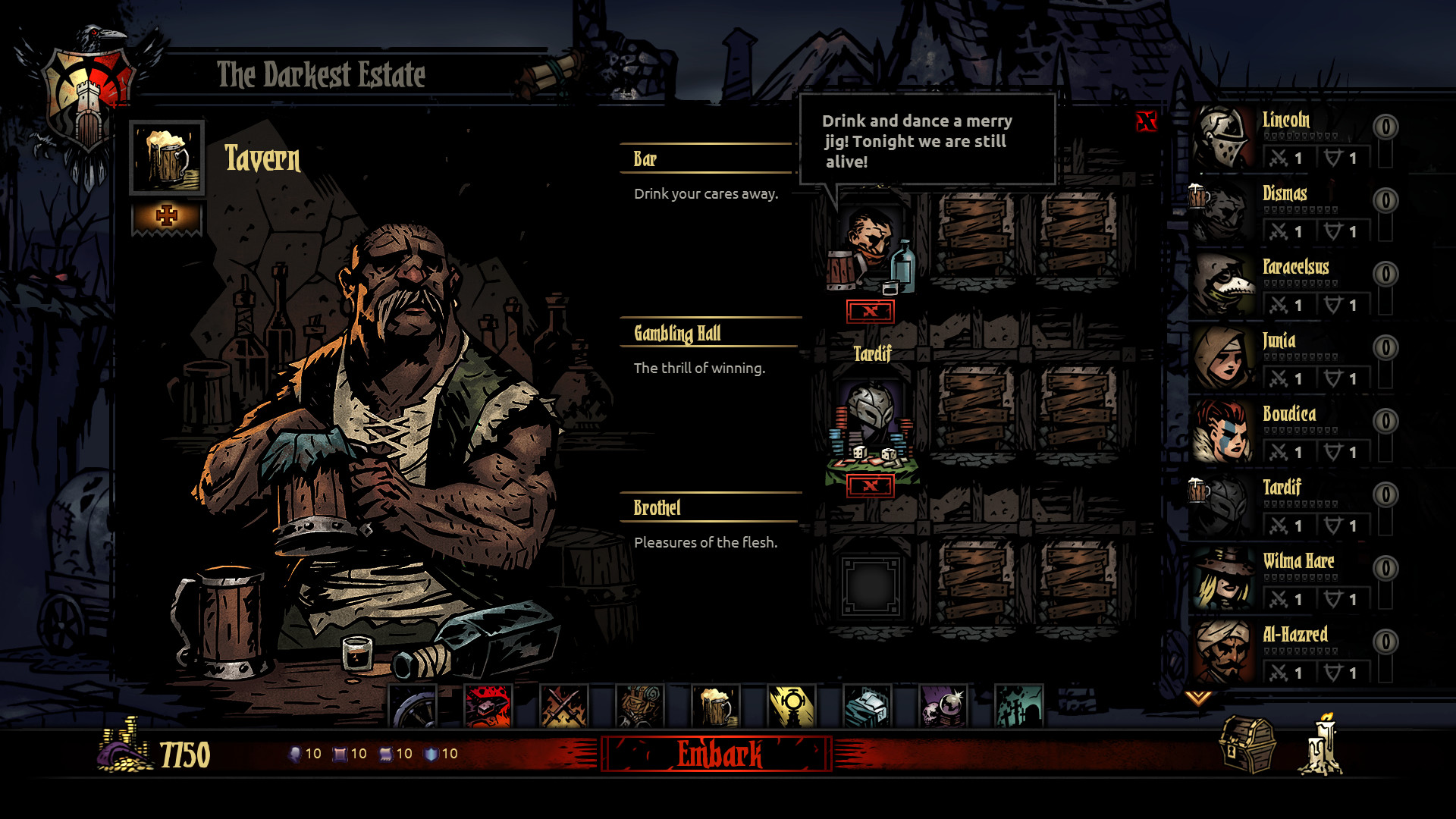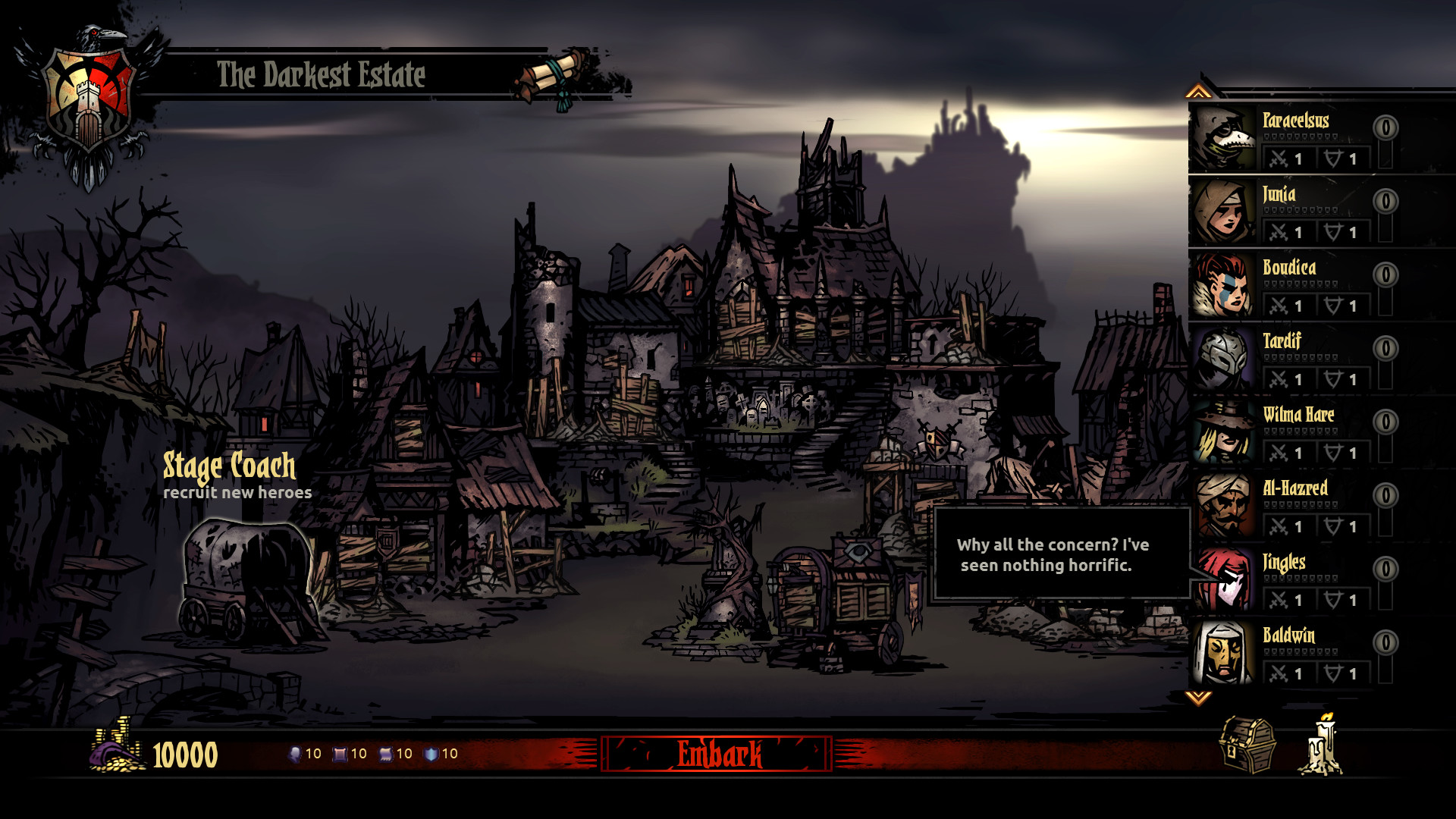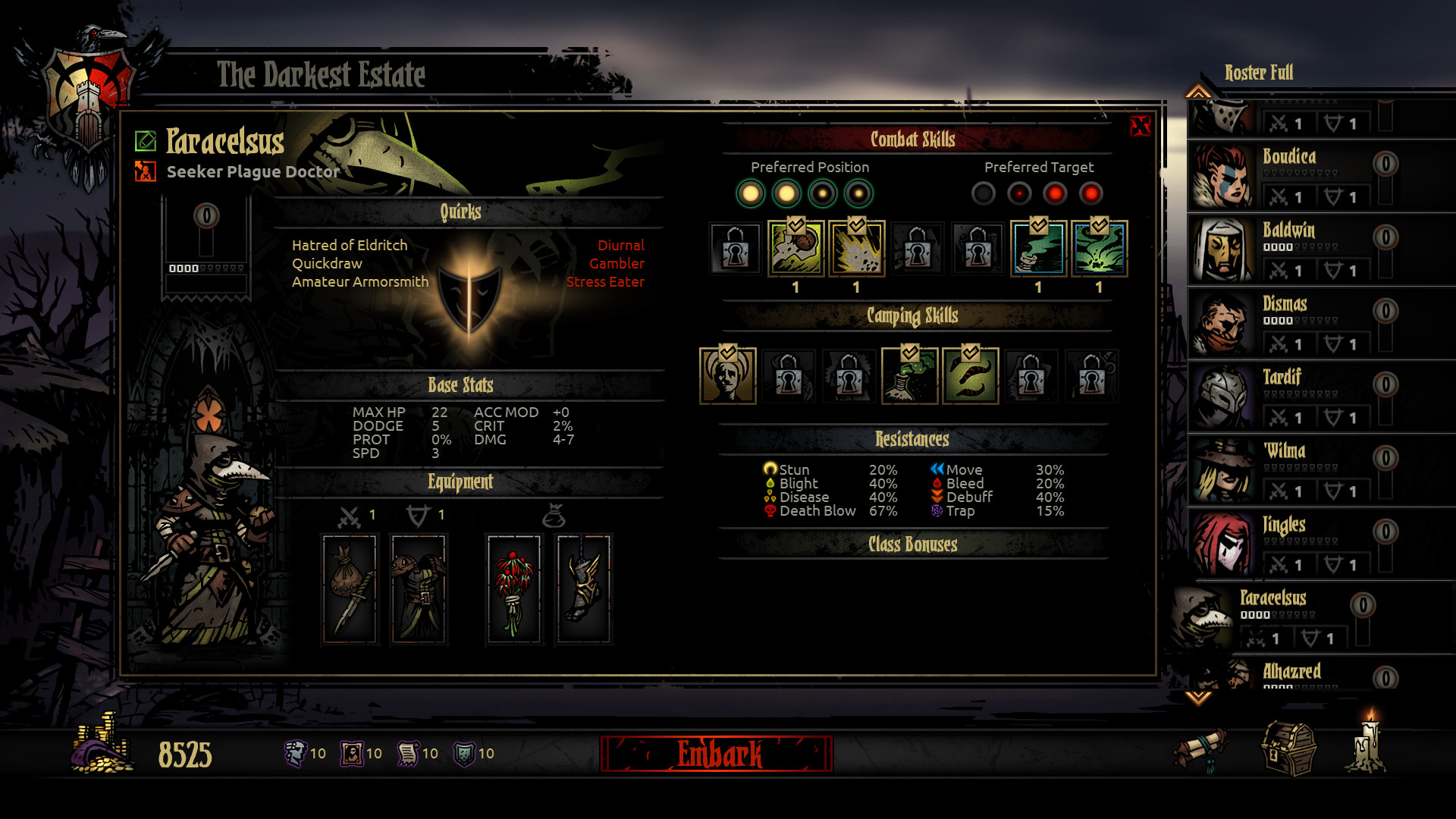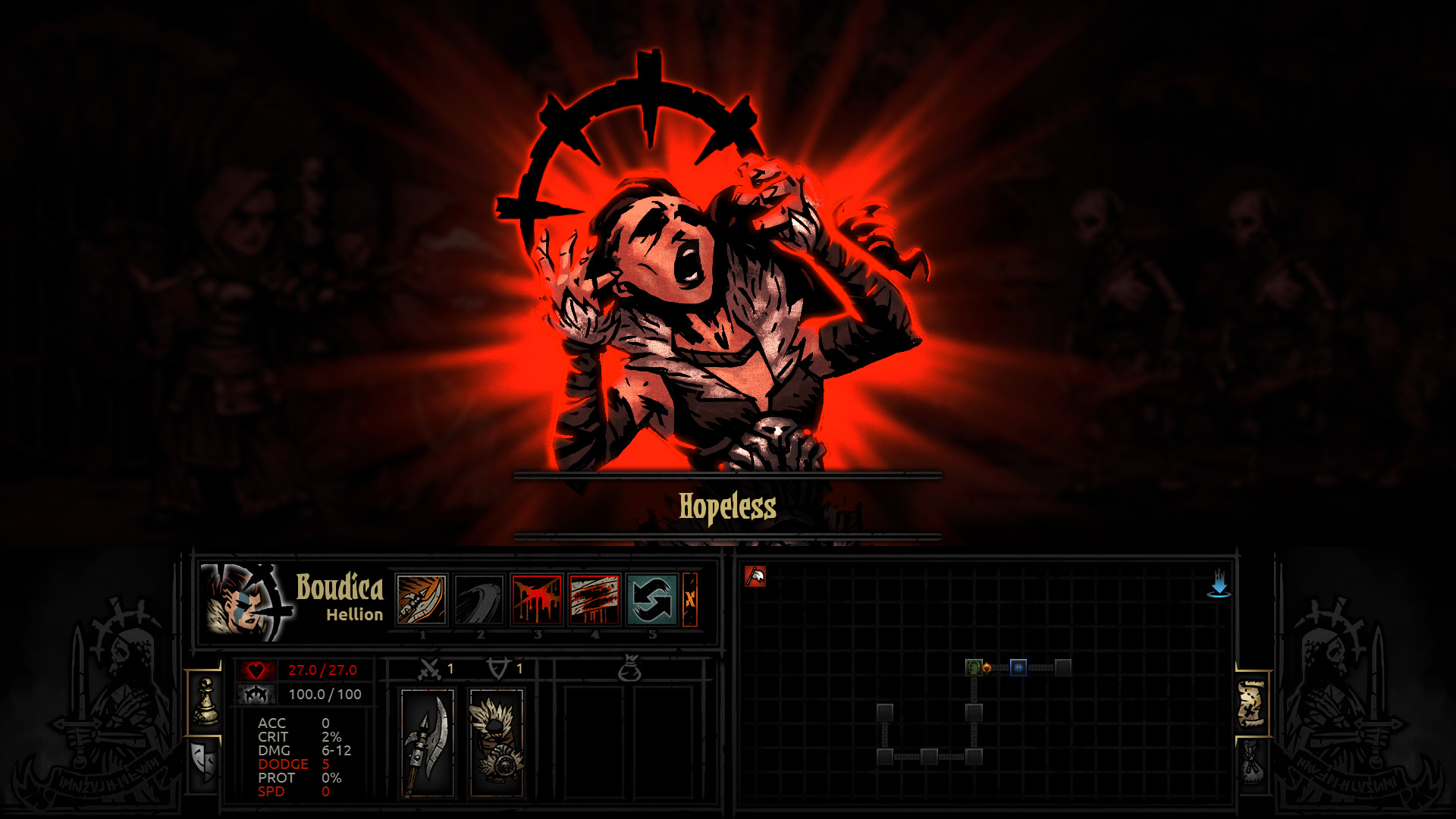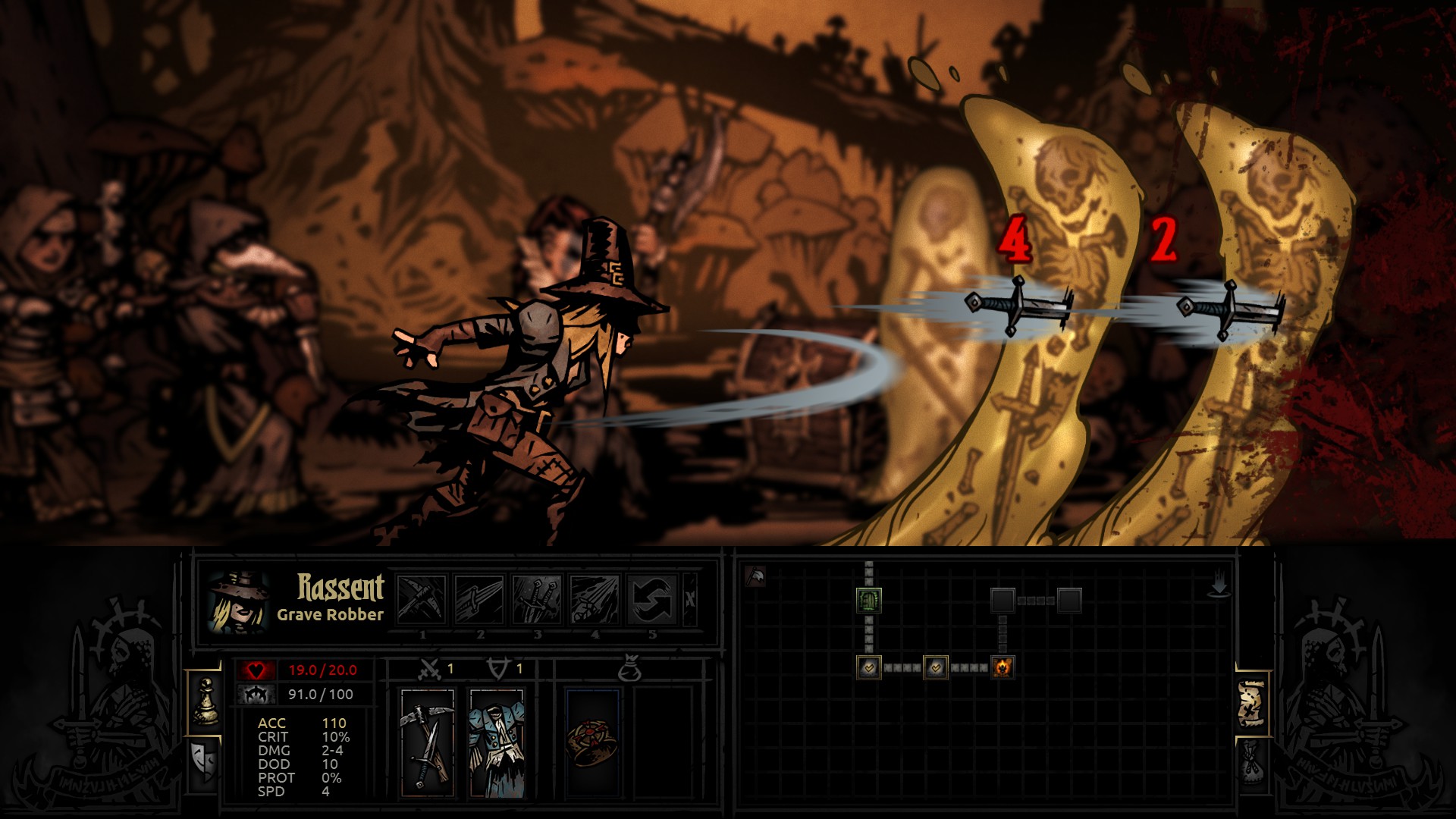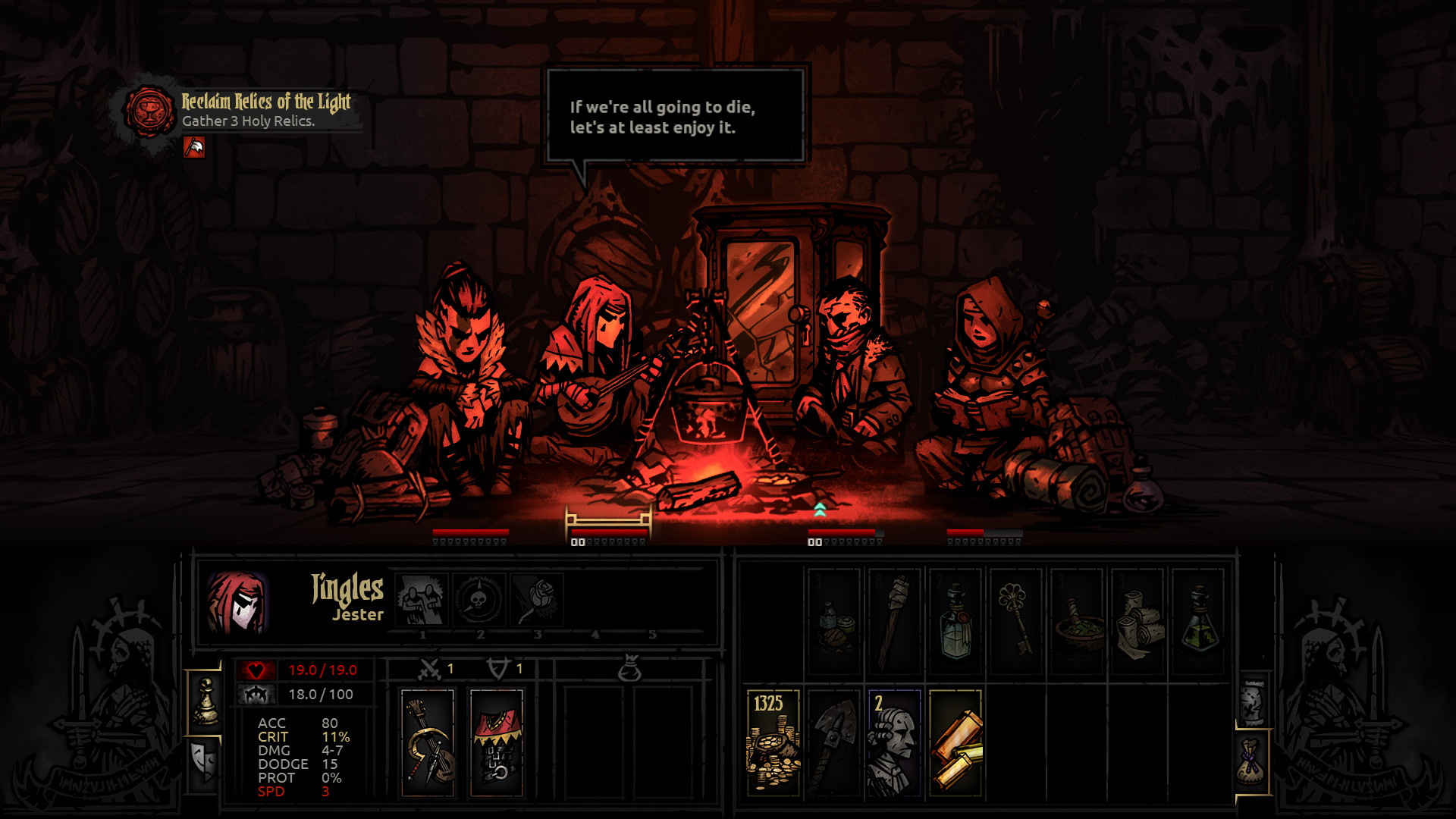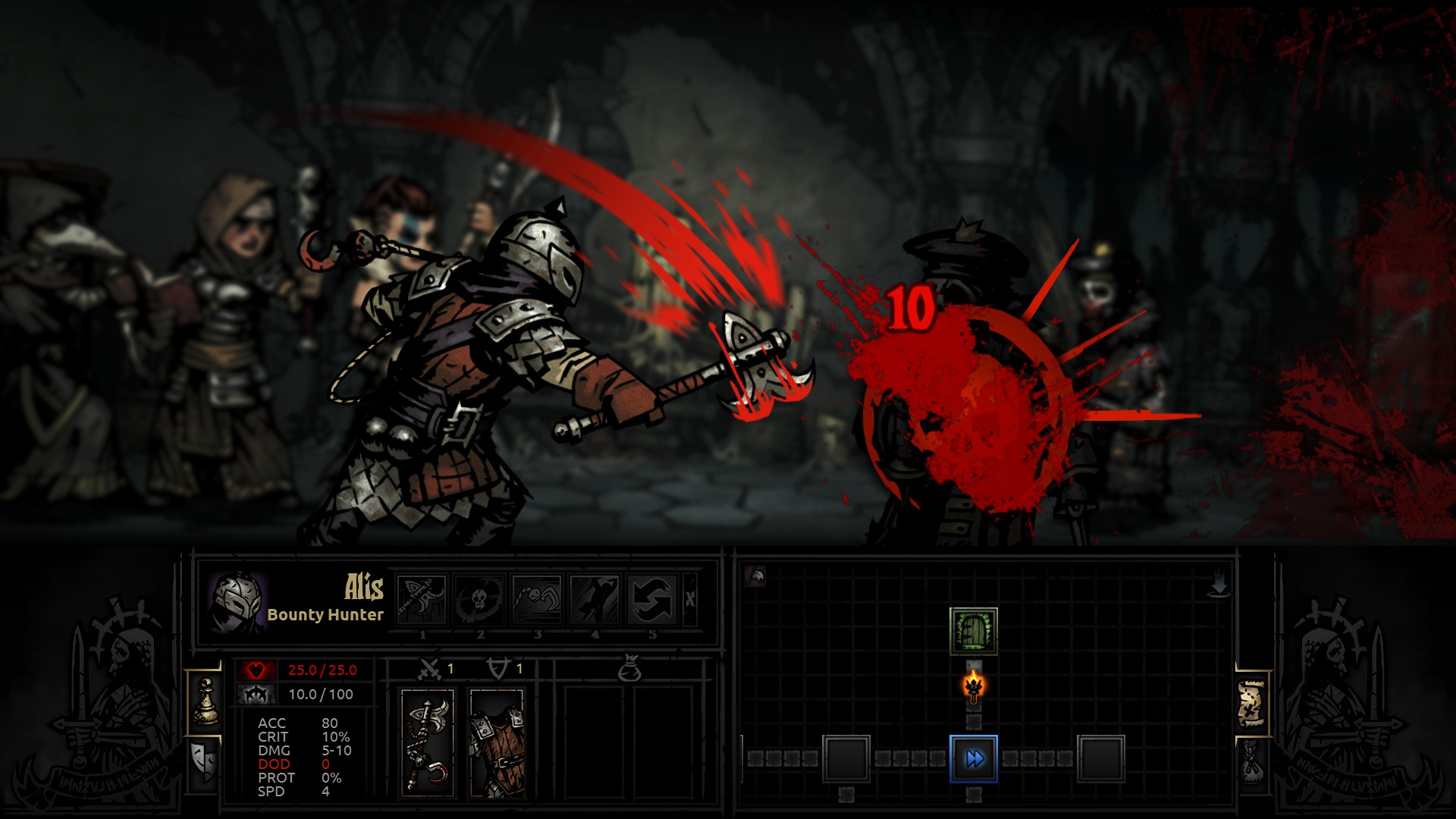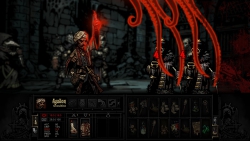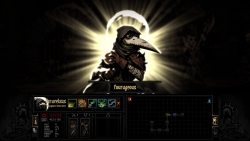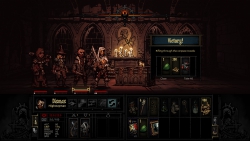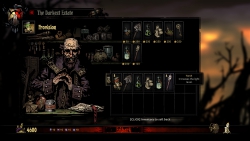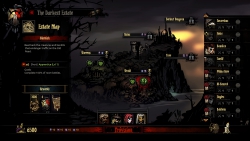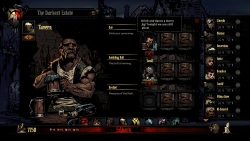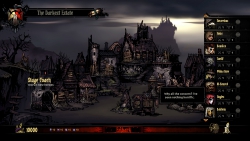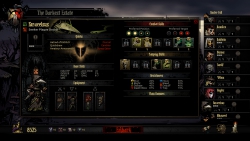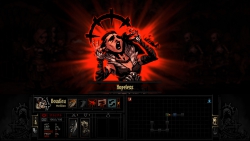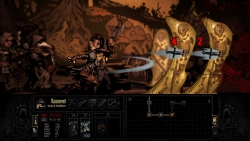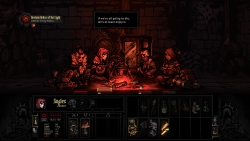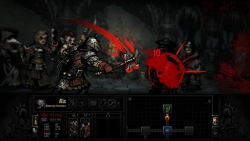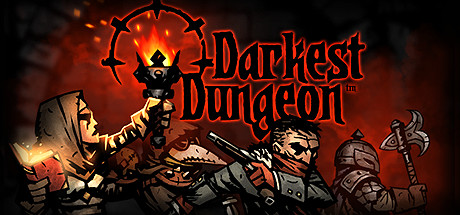Zitat:
Follow our Curator page,
Summit Reviews, to see more high-quality reviews regularly.
????Introduction
Darkest Dungeon (referred to as DD from now on) is a turn-based rogue-lite with a huge emphasis on difficulty, along with a crude and dark atmosphere surrounding it. Unlike a lot of other RPGs, DD forces players out of their comfort zone and makes them feel at the mercy of every battle they encounter. Your heroes will die, but death isn’t the end.
✔️Pros
• A diverse roster of heroes to choose from
• Each area has unique enemies
• Amazing atmosphere and narration that really nails the dark and gritty feel to the game
• Knowledge is power, enemies have specific attacks and weaknesses, bosses have unique mechanics you’ll have to overcome
• Combat is very tactile and strategy based, every move matters
• The stakes are always high
❌Cons
• Permanent progression doesn’t help you much when exploring dungeons
• There’s a big difficulty spike when going from Veteran to Champion dungeons
• Mistakes will cost you dearly, setting you back in your progress to defeat the Darkest Dungeon
????In-Depth Analysis
The Hamlet… It’s yours now
DD is made up of two stages, the Hamlet, where you treat and upgrade your heroes, and exploring the twisted depths of the dungeons. In the Hamlet you can recruit heroes into your roster, upgrade their skills, weapons and treat their stress levels to ensure they don’t go insane. This is where your main form of progression will be, upgrading buildings allows you to purchase more trinkets, relieve more stress from heroes, upgrade their weapons, armour and so on. It's a slow form of progression, which unfortunately, you never really feel whilst exploring the dungeons, it's only there to help treat your heroes faster and gain new skills.
Heroes Diversity
In order to traverse these dungeons, you need a group of heroes willing enough to explore the darkest depths. There’s a lot of diversity when it comes to heroes that you choose to recruit, each has a specific role to play. There isn’t such a thing as a ‘bad hero’ as everyone offers something unique to the team. But there is such a thing as a bad team, you need to pick who you bring along wisely as a bad team can lead to their demise. You can’t brute force your way through the game by bringing only damage dealers, you require a well-balanced team that can support whatever situation you might find yourself in.
Unlike traditional RPGs, it's crucial that you understand that the heroes in your roster are expendable. They can be cast away if maintaining their stress, quirks and / or diseases become too expensive. The game teaches this to you early on with level zero heroes that can be easily replaced by new arrivals in your coach. Admittedly, it might take a little while to get into this sadistic mindset, but the sooner you stop getting attached to ‘powerful’ heroes in your team, the better. You need to prioritise keeping your higher level heroes well rested and letting go of lower levels that aren’t worth the investment.
Nobody's Perfect
Whilst traversing such gritty and dark dungeons, your heroes will naturally develop both positive and negative quirks (mostly negative) either during the dungeons by being too curious, or when you finish a dungeon. Most of the time, these are out of your control, they become annoyances that you’ll either learn to deal with or remove for a cost. These can range from increasing/decreasing your heroes stats, making them steal loot for themselves, only allowing them to relieve stress in certain areas, making them believe they’re possessed by demons and so on. It's left up to you whether it's worth keeping the hero despite their flaws, or cast them away and start fresh. This makes every hero unique, even if you have the same two classes, you need to figure out if the positive quirks outweigh the negative ones.
https://steamcommunity.com/sharedfiles/filedetails/?id=2695524407
Harrowing Dungeons
There are four different areas to explore when choosing which dungeon to traverse, each area brings new threats and unique enemies that have different strengths and weaknesses. In order to survive you need to exploit their weaknesses as much as possible. Some enemies are more susceptible to the bleeding status effect than others, so figuring this out for each area is vital to making each journey as easy as possible.
Dungeon difficulty is determined by your heroes level, higher level heroes will refuse to fight in lower level dungeons. This forces you to balance out everyone's level in your roster, it’s no good having a single team at level five if the rest are at level two. It’s a clever way the game stops players from rushing and makes sure that you take care of your heroes. On the other hand, this strings out the game to be longer than you would expect, and even longer if your heroes die. You might feel comfortable traversing the lower level dungeons, however, as you progress to veteran and champion dungeons, you’ll soon be put back in your place, with uncertainty as to what enemies you’ll encounter and how to deal with them the most efficient way possible.
Fight… or Die Trying
Combat has a large emphasis on positioning, both for your heroes and the enemies you’ll encounter. Every attack can only be used if you are in the correct position, and can only hit enemies in certain positions. For example, melee attacks usually require the hero to be in the first or second position and can only be used on the first or second position on the enemies side. This is why it's extremely valuable to have a varied team that can deal damage to all four positions. You might be wondering why they would ever leave their preferred position(s) in the first place, but there are some enemies that move heroes back and forth. You can always move back to your original position within a move or two, but that wastes precious turns that you might not always have when battling fierce foes. On the other hand, you can also mess with enemies by pulling them into positions they don't prefer which will force them to use weaker attacks.
https://steamcommunity.com/sharedfiles/filedetails/?id=2695500268
Along with maintaining health during combat, stress is also a concern for your party members. Some enemies have attacks that purely focus on inflicting stress rather than dealing damage. Mitigating stress is probably more important than maintaining health since it's difficult to reduce stress when inside dungeons. That being said, a hero with zero health isn’t good for anyone, so managing both of these is crucial to your hero's survival and longevity. When you reach 100 stress the hero will be inflicted either positively or negatively (mostly negative though), this will cause them to act recklessly and make them do actions by themselves, depending on the infliction. This can range from passing their turn, attacking their party members, stressing out the other party members, attacking by themselves and so on. It's a downward spiral that, if left untreated, will cause other party members to become more stressed and be inflicted as well.
????Closing Thoughts
DD is a brutally difficult game, it turns the genre on its head by making the heroes you recruit nothing special. They are replaceable, and they can die. The combat is thought-provoking, every attack has a chance to miss, and it's up to you whether it's worth taking the risk. Admittedly, the progression is slow, and killing a level six hero can be extremely detrimental to completing the game which might turn a lot of people off. However, it's part of the game that you’ll learn to accept and cope with.
Zitat:
